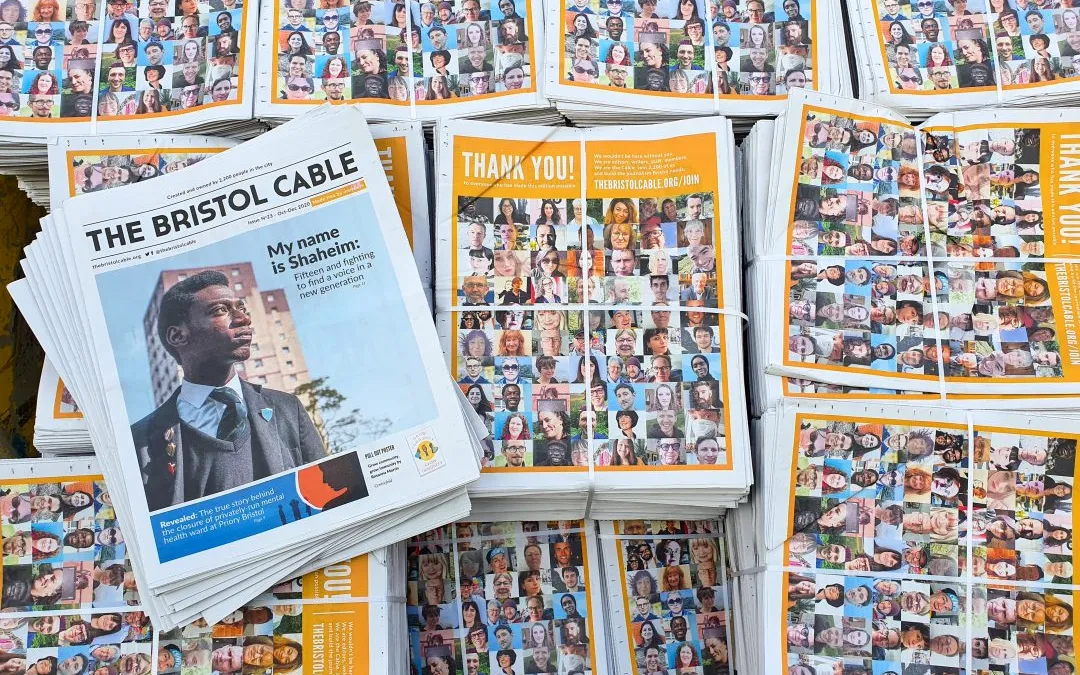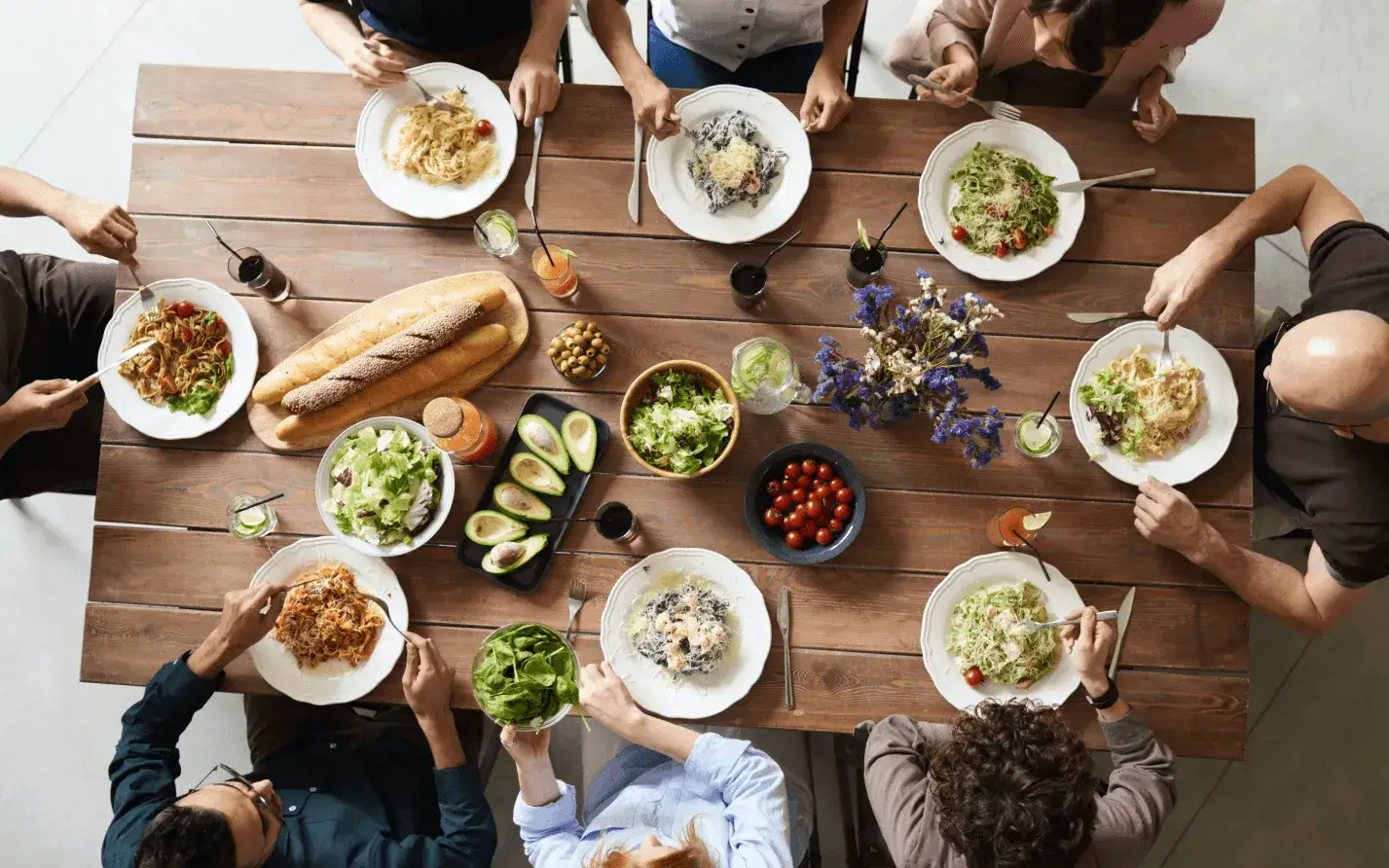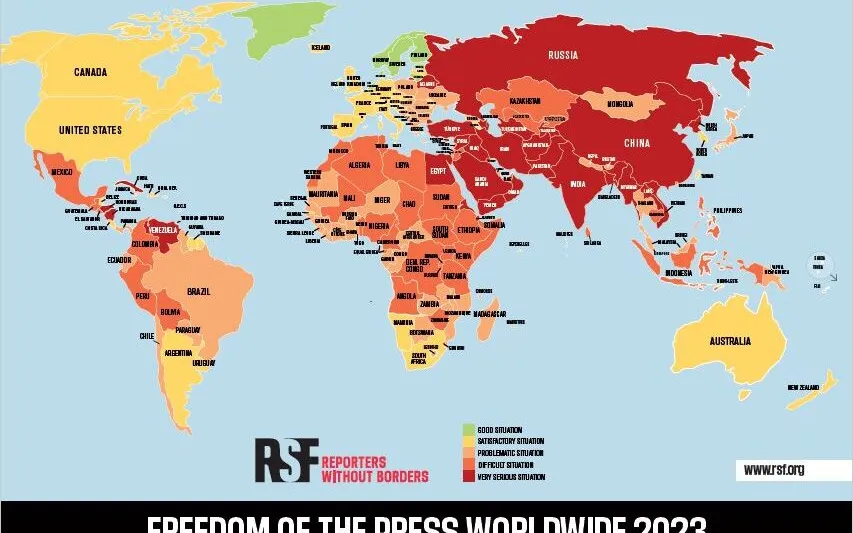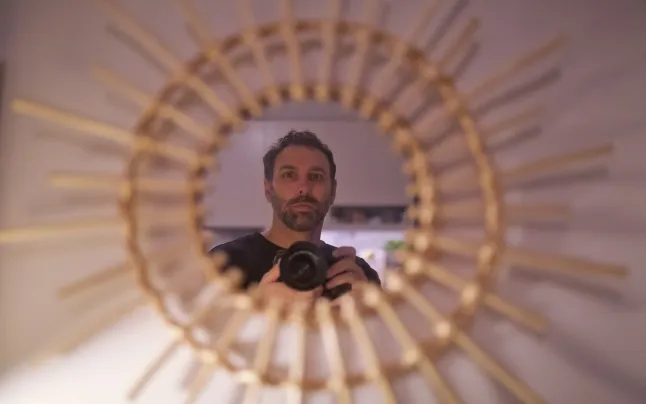Lucas Batt: "Local journalism is impactful when it meaningfully engages with communities and responds to their needs"
Lucas Batt, a membership and fundraising Lead for the Bristol Cable, stands out the importance of this local newspaper which aims to "inform and empower citizens making membership an inclusive, meaningful and sustainable model for local journalism".
What is The Bristol Cable?
The Bristol Cable is a reader-owned cooperative newspaper founded in 2014, based in the city of Bristol, UK. We’re taking a fresh approach at how local news should be owned and produced which includes funding, formats, products and access. We’re directly funded and 100% owned by 2,700 members, who collectively contribute a third of our income.
Regarding formats, we publish in-depth local journalism - investigations, solutions - as well as community voice pieces, and audience engagement in our journalism. We publish regularly online, weekly newsletter, podcasts, videos, and our quarterly flagship print edition - 30,000 copies which we distribute across the city. In terms of access, all our journalism is free to access, made free by members.
Why did you decide to open a local newspaper?
The Cable was set up because we saw local media wasn’t serving people or communities properly. We aim to address three related problems in local journalism: The first one is the broken local news business model, with the decline in print revenue replaced by online advertising. In the era of Google and Facebook taking up most of the ad revenue rather than publishers, we saw this increasing lead to consequent media consolidation.
The second one is the resulting declining in quality of journalism. And the third one is the resulting decline in trust and interest in news.
What is your function as a local newspaper?
We care about solving these issues because they matter for our local communities. We believe local media should be a foundation for civic engagement in local democracy and accountability; a source of information which helps people understand what’s happening, informing how they should navigate their lives, and a place where communities can have conversations.
It’s clear to us that local media, at its best, is a community asset. Through our community-ownership model, the Cable puts the public at the heart of public interest news.
What is the impact of local journalism? How does it help to control power?
Everything, ultimately, happens somewhere, which is why Local journalism is so vital. Local journalism is impactful when it meaningfully engages with, communities and responds to their needs. Communities want to feel seen, be fairly reflected, and celebrated.
People need information which enriches their understanding of where they live, understand what’s not working, and why – information they can use as citizens to help navigate their lives.
How should these local journalists be?
Local journalists should be embedded in where they live, to really understand the communities they report on, and the people they’re reporting with. Investigative journalism which uncovers important information is crucial in holding power to account.
Through bringing uncomfortable truths into the light which powerful people or entities would rather stay hidden, citizens and local leaders can be motivated and empowered with this information to challenge wrongdoing happening where they live, and thereby create change. Trustworthy, useful information is the light we need in any democracy or community.
Being a 100% member owned newspaper, do you have more freedom to publish some content?
Being 100% owned by thousands of local people – Bristol Cable members – means we do not need to serve anyone’s interest but the public interest. Members support the Cable to serve the interests of everyone in Bristol, not just Cable members. Membership is the foundation of our independence and gives us the funding, power, security, and responsibly to pursue journalism that many other publishers may not be able to, such as long-term investigations.
I read that you do not accept corporate advertising, how do you finance the newspaper?
We are 35% funded by membership contributions, 5% from advertising, and 60% from grants. The advertising is only in our free quarterly print edition, and must comply with our ethical advertising charter which was co-created with Cable members. We are working to grow our membership income, and diversify our revenue streams, and grants have been a crucial income stream to give us the space and time to develop those, as well as funding our public interest projects.
How did you manage to form a cooperative with so many members?
It takes time to grow a community! We’ve grown our cooperative through community engagement and proactive outreach to existing organisations and groups, engaging and involving them in our organization and journalism.
Through publishing and distributing our journalism for free across the city, we are constantly reaching tens of thousands of people. We ensure we are always telling the story of what we, as an organization, exist for, and why we need people to join our cooperative to be a part of it. We then make it easy for people to sign up to become members on our website, from just £1 a month.
Ultimately it’s through continually delivering on our values that we build the evidence and trust that we’re an organisation worth supporting and that people may want to be a part of.
How do you take care of your social base?
To involve members, we regularly update members about what we’ve been up to, what we’re working on, and celebrate wins, emphasising that members are essential to everything we achieve.
Through regular communications and providing opportunities for members to feed into our organisation and journalism, as well as publishing journalism that people think is worth supporting, we build the sense of belonging which is essential to growing and sustaining membership.
What makes people part of the newspaper?
Being a member is what makes people part of the Cable. Whether members just want to contribute financially every month and read the newspaper, or respond often to call-outs for information or attend our Annual General Meeting, everyone who’s a member is an equally important part of our organisation.
Similarly, while members are important for the organisation, everyone in Bristol is important for our newspaper. It’s through producing journalism which is relevant, reflective, and useful for communities in our city that people may feel seen, and as we engage them in our journalism they may feel more recognised and a part of our newspaper.
How is participation in the newspaper encouraged?
Our Annual General Meeting (AGM) is our biggest member participation event. It’s an annual event where we meet with members to review our last year, scrutinise our finances, elect directors, and make big decisions which help shape our direction. We’ve asked questions such as: What kind of journalism should we prioritise? Should the Cable push for political and policy changes? Should we apply for a grant from Google? Or what decisions should members be consulted on?
Any member can stand to be a director and join our non-executive board, which provides guidance, advice, and accountability to the staff team. We also regularly run events to better connect people with our journalism, from hosting debates and live podcasts, to showing behind the scenes on our stories and facilitating conversations between members.
How do call-outs work? How do they enrich citizenship in journalism?
As well as events we regularly share call-outs with members and our wider audience, which are surveys where we ask for people’s information needs, their opinions, or for their experiences or expertise. Call-outs are created through the beabee community engagement platform which we pioneered.
We have asked questions such as: Have you experienced problems with your landlord since the pandemic started? How do you feel about the end of Covid restrictions? Should we keep Voi e-scooters in Bristol?
What do you do with the answers from your members?
From these we write articles summarising people’s opinions, helping bring together community conversations in a safe and constructive way.
We also run yearly large call-out projects. For example, this year in Bristol were going to have a referendum on whether we should keep the mayoral system. We realised it was really confusing, so we asked our community what they wanted to know through a call out. We answered dozens of community questions to provide information and context. This was our most read article of our extensive referendum reporting, and it helped guide our reporting too. It provided the essential background and information people needed, and its success totally relied on crowdsourcing questions people really wanted answering. We also helped facilitate the debate around the election through bringing together reader opinions.
Do you have another example of a Call-out?
Yes, the project we did was the Citizens’ Agenda. The Citizens’ Agenda is a list of the top issues people in the city want the candidates to take action on if elected – directly informed by people responding to the call out. The Agenda aims to allow the election debate to be shaped by the city’s citizens, not just its politicians.
We asked two simple questions: “This election, what issues are most important to you?” and “What question would you ask the candidates for city mayor, if you could?” After hearing from hundreds of local people, we analysed the responses and created a list of 8 top issues, which helped inform our reporting, and we brought community questions directly to candidates.
What does this newspaper offer that others do not offer? What sets it apart?
We’re not just a newspaper – we’re a community that wants to use journalism to make our city a better place for everyone. Members have real ownership and power in the organisation, and we aim to make membership as inclusive and accessible as possible.
We’re not exclusive – we believe journalism is a public good, so we make everything we produce free to access and distribute 30,000 copies of our quarterly print edition for free across the city. We prioritise in-depth investigations to create deeper understandings of what’s really happening, and solutions journalism to help people understand what we can do about things. We lift up and amplify marginalised voices and reach out beyond our membership to engage with communities across the city.
We are not-for-profit, led by our members, and we don’t accept corporate advertising. Together, we’re working to build an alternative to the unprecedented crisis in trust and viability faced by journalism, through a new model for local media that seeks to really understand and meet community needs through our organisation, engagement, and journalism.








Add new comment